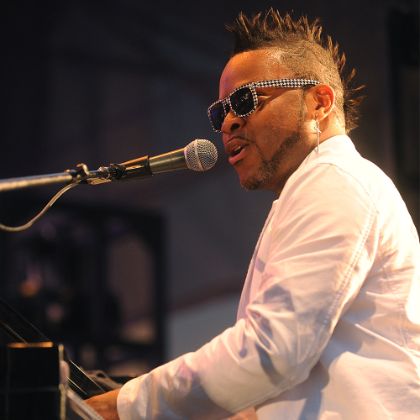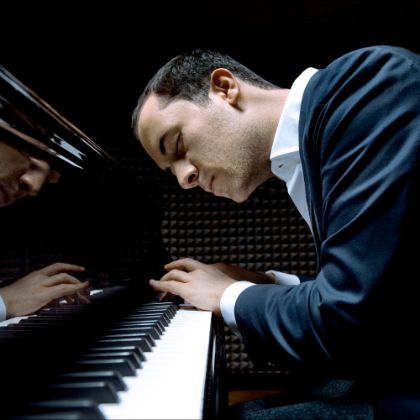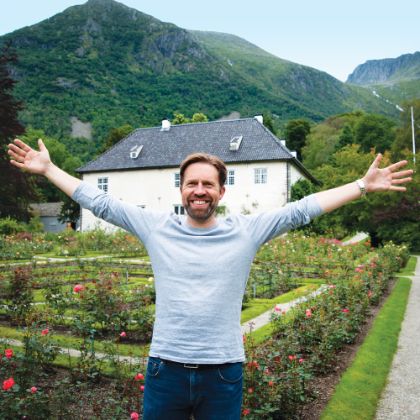Listen Magazine Feature
Kirill Gerstein Pursues Classical with an Improvisatory Flair.
By Brian Wise
Kirill Gerstein wasn’t completely unknown before winning the 2010 Gilmore Artist Award. But the prestigious $300,000 prize, given out every four years on a non-competitive basis, thrust the affable, thirty-year-old, Russian–born pianist into stardom. The Gilmore jury, which secretly evaluates hundreds of pianists before announcing a winner with an oracular flourish, shirks cookie-cutter, technical perfectionists in favor of more distinctive musical personalities.
‘I wouldn’t trade anything for this wonderful gift that pianists have — all the Bach and Beethoven sonatas and Rachmaninoff concertos.’
Indeed, Gerstein’s path to a classical piano career wasn’t paved with the predictable signposts of Russian musical education. Born in Voronezh, three hundred miles south of Moscow, he taught himself to play jazz by listening to his parents’ extensive record collection, improvising along to greats like Dizzy Gillespie and Oscar Peterson. At fourteen, after participating in a series of jazz workshops in Poland, he came to the United States as the youngest student ever to attend the Berklee College of Music in Boston. After two years of jazz training, the lure of classical music grew stronger and he eventually moved to New York City to study at the Manhattan School of Music.
Soon Gerstein was making his mark with a series of competition victories, including first prize at the 2001 Arthur Rubinstein Piano Competition in Tel Aviv. Earlier this year he picked up a $25,000 Avery Fisher Career Grant.
While his calendar today is packed with major concerto dates (San Francisco, Cleveland, Philadelphia), Gerstein doesn’t feel like he left his jazz training in the classroom. It comes out, he says, in the sense of spontaneity and “relaxed or flexible sense of time” he brings to music by Liszt or Rachmaninoff (others would call that “swing”). He also gravitates towards jazz-tinged works like Milhaud’s Creation of the World and Gershwin’s Rhapsody in Blue, his particular calling card.
Noting that historically artists from Liszt through Earl Wild improvised on popular themes, Gerstein hopes to add more improvisation, including straight-ahead jazz, to his repertoire. But the classics remain at the core of his mission. “I wouldn’t trade anything for this wonderful gift that pianists have — all the Bach and Beethoven sonatas and Rachmaninoff concertos. A lifetime is not enough to study all of it.”
This article originally appeared in Listen: Life with Music & Culture, Steinway & Sons’ award-winning magazine.
related...
-

Soundboard — Davell Crawford
Davell Crawford discusses the rich jazz tradition of New Orleans, the fall of New York, moving forward, and employing the multiple personalities that live within you.
Read More -

Unscripted
Igor Levit on improvising; his ‘very direct’ and personal sound; and his love for Frederic Rzewski, Marina Abramovic, and voices beyond the classical canon.
Read More
By Ben Finane -

Mozart In Rosendal
Reportage from Leif Ove Andsnes’s chamber music festival
Read More
By Ben Finane